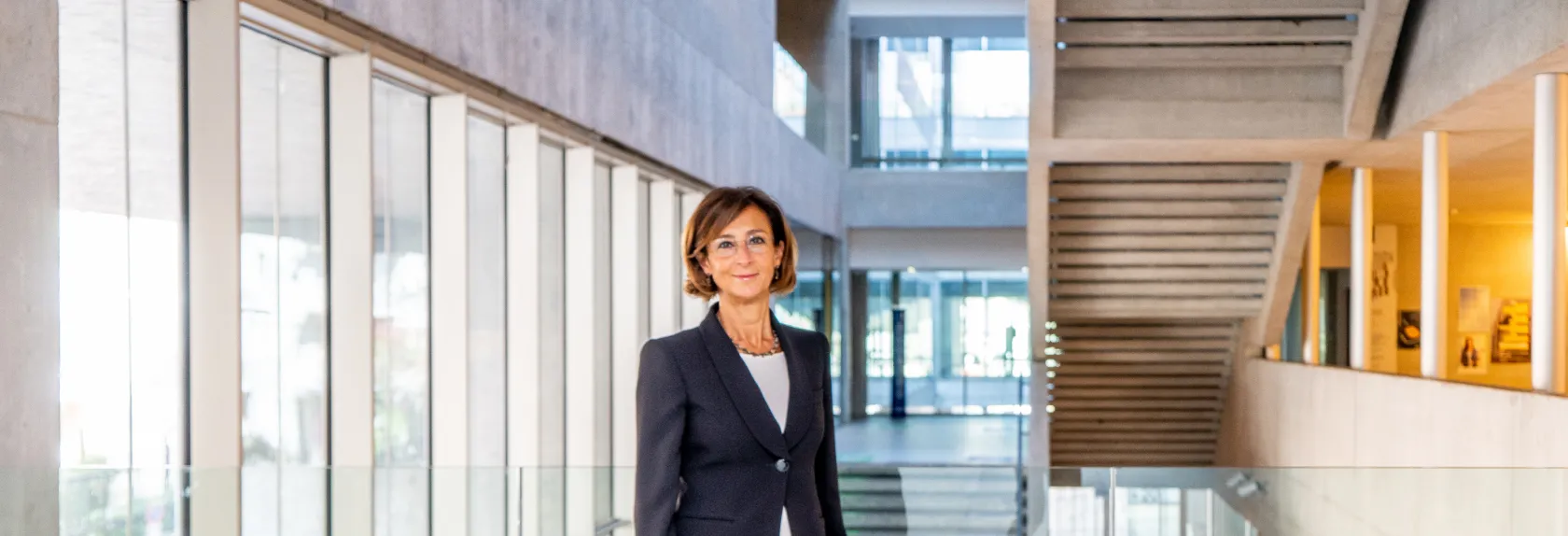
Constitutional Law in Action
"You have to see it with your own eyes," said Piero Calamandrei, referring to prisons. Marta Cartabia, Full Professor of Constitutional Law at Bocconi University, former President of the Constitutional Court and Minister of Justice in the Draghi government, truly believes in this idea. Assisted by colleagues Davide Paris and Davide Zecca, she invited first-year students taking the Constitutional Law course to attended a series of lecture/debates held by Professor Antonio Casella on the main issues facing the prison population with inmates of the San Vittore Prison in Milan. The two groups of 12 students thus participated in a unique and formative initiative as part of the "Living Constitution" project.
"The initiative," explains Cartabia, "is part of a broader project. It will be replicated next year under the title 'Constitutional Law in Action', and it aims to take students out of the classroom and show them symbolic places of republican institutions, so that they understand how the Constitution affects people's lives – seeing them in person." Penal institutions are part of a broader program of initiatives focusing on the prison population, which includes the Legal Desk at the Bollate Prison – Legal Clinic Project coordinated by Melissa Miedico – and the Bocconi in Opera social re-education project – headed by Carlo Salvato. The latter allows some residents at Italian prisons to attend classes and graduate with a Bachelor in Economics and Management. The latest project is thus only one of the options offered to students, and on an absolutely voluntary basis. "However, as we had a higher number of requests than spots available," says Cartabia, "we proceeded by drawing lots to determine who could participate. Three students from each class came to the institute at Milan’s Via Filangieri to attend lectures over a total of six Saturday mornings." There, they tackled hot button issues with a group of about 50 inmates – such as the overcrowding of our prison system and reintegration after serving their sentences – discovering that there are currently no satisfactory answers, despite the promises and laws passed that are difficult to enforce.
"Our students can thus see for themselves the place where the law is manifested in perhaps the most extreme way," says Professor Cartabia. "I can already say that it has worked. Hearing 'the sound of the deadbolts' has opened many of their eyes, and I know that some students have asked to continue volunteering." The experience was so powerful that it led one of the participants in the projectand a Campania native, Consuelo Rosa Chioccarelli, to change her plans for the future. "When I started my career at Bocconi I imagined myself in the role of corporate lawyer, but now I have turned to criminal law. I know it's too early for final decisions, but now I see this in my future." What made her change her mind was what she saw and heard during her visits to San Vittore: "The detainees are in prison because they have committed crimes," she says, "but we must never forget the human dimension that is hidden behind these events. And, above all, that even if deprived of their liberty for their deeds, prisoners cannot be denied dignity, as is too often the case in our prisons. It's enshrined in the Constitution."
She had a strong vocation, and after her visit to San Vittore it was even stronger. For Alberto Sussetto, a Turin local, the future as a magistrate seems to be mapped out. This is in part thanks to what he saw in person: "I wanted to see directly what we usually learn only through what you hear from others. On a personal level, I have gained a better understanding of prisons," explains Alberto, "as well as some surprises. Such as, for example, the relationship of collaboration – I would almost say of empathy – that exists between prisoners and staff, who often grapple with common problems even in their respective roles." But that's not all. From Marta Cartabia's lectures and from what he learned during his visits, future magistrate Alberto Sussetto learned a lesson that he wants to apply when he has to make difficult decisions: "Look at the person beyond what’s on paper because we are indeed jurists, but above all people."
translated by Jenna Walker